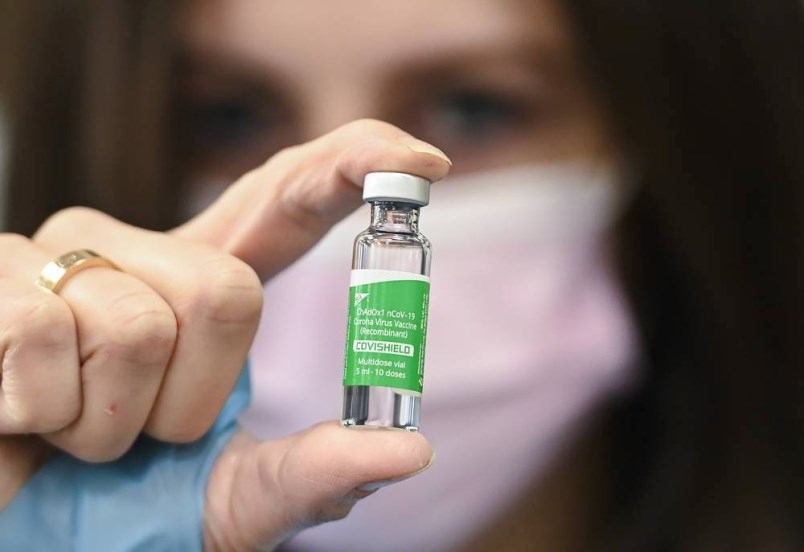I got the AstraZeneca this week. Failed to clot up and croak, which will disappoint some readers.
My arm was sore for a couple of days, but I put that down to Bill Gates trying to send me subliminal messages through the microchip they implanted along with the bleach and monkey DNA, or whatever it was I got shot up with.
Good luck with that, Bill: I think bacon is a vegetable, used to smoke, and spent my childhood running through crop-duster malathion, pretending it was rain. If none of that made me grow another head, then I can handle a little squirt of COVID juice.
Not, I should hasten to add, that I should be telling you, Dear Reader, to get a vaccine. What kind of person would take medical advice from a newspaper columnist? Why, that would be almost as crazy as ignoring the provincial health officer and taking your lead from some half-informed mommy blogger instead.
This does raise another question, though: It you have the right to refuse a vaccine, do others not have the right to protect themselves from your decision?
This popped up in relation to a couple of stories last week. First, we read of the Simon Fraser University mathematicians who calculated that if no more than 80 per cent of adults choose to be vaccinated, it’s unlikely B.C. will return to normal this autumn, as that won’t be enough to achieve herd immunity. Their findings suggest that if we want to avoid ongoing pandemic dreariness, we’ll have to inoculate children, too. (On the other hand, there’s nothing to say we won’t top 80 per cent of adults.)
The second story came from the U.S., where the University of California and California State University jointly announced that no unvaccinated students, staff or faculty would be allowed on any of their campuses as of this fall.
The two institutions weren’t the first to require mandatory vaccinations — universities such as Stanford, Rutgers, Brown, Cornell, Northeastern are also going down this path — but with a combined million people spread over 33 campuses, the California heavyweights were the biggest. Most universities with such policies will allow exemptions for medical and religious reasons, but only if those being exempted submit to and pass regular COVID testing.
Don’t know that we’ll see anything like that up here. Note the update that went out to the Camosun College community Thursday. “The college encourages all students and employees to learn about the benefits and safety of the vaccine and consider vaccination to protect themselves and their community,” it says. But then it continues: “No vaccines are mandatory in Canada. Vaccination status is a person’s sensitive personal medical information.”
Likewise, the University of Victoria has updated its website, too: “The COVID-19 vaccine is not mandatory in order to study, work, visit or live on campus. No vaccines are mandatory in Canada. Public health authorities encourage all British Columbians to learn about the benefits and safety of the vaccine and consider vaccination to protect themselves and others.”
In other words, they’ll lead the horses to water, but won’t make them drink in order to be admitted to the stable.
It’s an interesting moral quandary. The question isn’t whether someone has the right to reject a vaccine, but whether others must accommodate their decisions. It can be argued that employers have not just the right but the obligation to shield their staff and clients from those who could carry the virus into the workplace. The counter-argument, at least when it comes to employees who truly fear vaccines but also desperately need to hang onto their jobs, is that measures that exclude unvaccinated workers from their workplaces — or students from their schools — effectively rob them of their right to refuse a shot.
Me, I’m just happy that we have the luxury of having this argument, as it means there’s a vaccine to fight about, which there wasn’t just a few months ago. And I’m feeling lucky/guilty/relieved that I got mine when I did, ahead of people whose vulnerability to COVID is greater than mine, and whom I want to see safe. It seems silly to be talking about the consequences of refusing a shot when most people are still anxiously awaiting the chance to get one.



